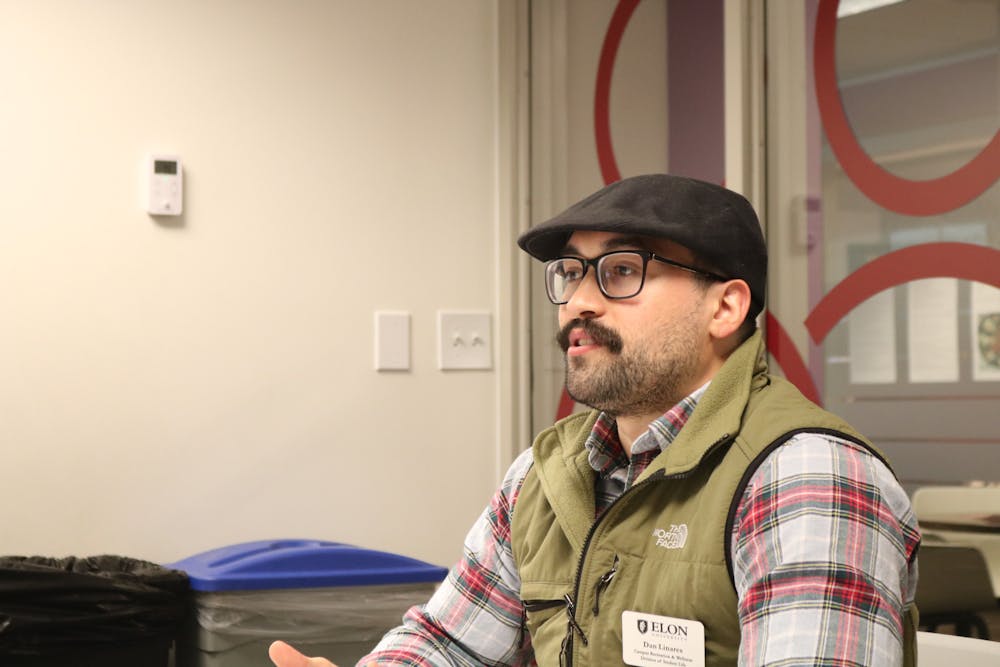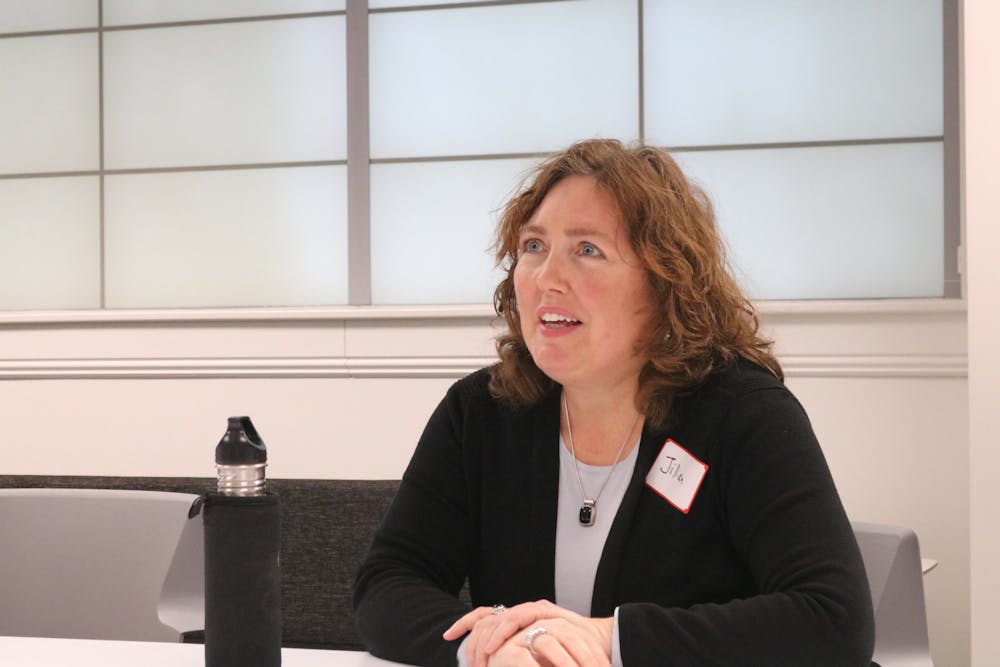Elon Votes is encouraging students to vote this year by offering various resources and programming, including a discussion with students and community members on if they think their vote matters.
Bob Frigo, the assistant dean of campus life and director of the Kernodle Center for Civic Life, is one of the advisers of the Elon Votes program. In a statement to Elon News Network, Frigo wrote that Elon Votes was created to get students actively involved with the democratic process.
“Elon Votes is a nonpartisan campus initiative created to provide students with the necessary resources to register to vote and cast their ballots in upcoming elections,” Frigo wrote.
The primaries in North Carolina primaries are approaching on March 5. The Pew Research Center reported in a 2023 survey 63% of Americans are dissatisfied with the presidential candidates for this year's election. A Harvard youth poll from 2023 revealed that fewer voters under 30 are planning to vote this year compared to the 2020 election.
Frigo wrote that currently, Elon Votes’ is focusing on initiatives that revolve around voter education and registering students to vote. Elon Votes also introduced the addition of the “phoenix voter card.” The card was approved by the North Carolina State Board of Elections as a valid photo ID for North Carolina voters. The phoenix voter card is free and available in the phoenix card office for students and will serve as both a voter ID and Phoenix Card.
Elon Votes helps Elon students from all over the country register to vote, and also helps students cast their absentee ballots, Frigo wrote.
Its in-person office — located in Moseley 232 — assists with voter registration and absentee ballots. They also provide free stamps and envelopes to send your ballot, Frigo wrote.
Elon students can decide whether they will choose to register to vote in their home state using their permanent address or to register in North Carolina by using their campus address. In the 2020 election, 74% of Elon students voted — this is 8% higher than the average voting rate of all colleges which is 66%, according to a report by the Institute for Democracy and Higher Education.
Frigo wrote that Elon Votes hosts a variety of events including debate watch events, election night watch events and State of the Union watch parties.
On Feb. 26, Elon Votes hosted a “deliberate dialogue” as a part of their active citizen series. Sponsored by the Kernodle Center for Civic Engagement, the program is an initiative to prepare students to be active members of the democratic process.
The conversation's topic was “Does your vote really matter?” The conversation was outlined through a company called Living Room Conversations which strives to help facilitate deliberate conversations across divides and between communities.
“This program was created to actively engage students in our democracy,” Frigo wrote. “The Active Citizen Series is designed to cultivate the next generation of informed leaders who will help strengthen communities and shape our democracy.”
The crowd included students, faculty and members of the Alamance community. The group was split up and led by various staff members and people involved with Elon Votes.
Daniel Laneries, the assistant director of experiential learning and outdoor adventures at Elon, facilitated one of the six groups. His group consisted of five students and Jillian Auditori, a lecturer in policy studies and political science at Elon.

The discussion started with a list of six “conversation agreements” displayed on a handout, ranging from the expectation of respect to the importance of being authentic. Then each group member went around and introduced themselves and said why they were attending.
Two students said it was to meet a requirement for COR1110: The Global Experience, while others attributed their attendance to requirements for scholarships and extra credit for a class.
Laneries said in discussions like this it can be impossible to create a “safe space,” and asked for everyone to try and create a “brave space.” This type of method is meant to encourage people to have the courage to share.
The conversation addressed various questions, ranging from “are you registered to vote?” to “how have you seen election results impact different groups in your community?”
Lanerias took a freeform approach, allowing people to respond at their own pace and relying on responses on a volunteer basis only.
One question sparked similar responses from all the participants: “How do you feel about the significance of your vote?”
Almost every student expressed feeling conflicted while voting. Some students felt like they were “throwing away their vote” by voting for an underdog candidate.
Several students also talked about growing up in a household in which politics was never a discussion topic. One student said their parents had an apathetic view towards voting.
Every student said they felt like this is a more politically divided time now than during previous elections, because of the increase of extreme views.
Auditori said she worries about voter turnout this year because of people's overall uninterest in voting. She said the entire ballot is important, not just the presidential vote.
Over Winter Term, Auditori led a Study USA program following the primary elections. The program went to both South Carolina and New Hampshire and she said she saw a huge contrast between each state's voter turnout. Auditori said she left South Carolina worried about voters' uninterested attitude towards voting. However, when she went to New Hampshire the excitement around voting gave her hope for the future of voting.
For many students this will be the first presidential election they vote in. In a survey of 178 Elon students on an anonymous social media platform called Fizz, 39% of them said yes to voting. The remaining 61% either said no or that they aren't sure yet.
One freshman, Sarah Jackson replied to the poll asking students to vote in the upcoming elections.
“Voting is so important and it's even more important to be informed so do your research as well,” Jackson told Elon News Network.
Early voting for the North Carolina primary elections are being held on campus in the south gym until March 2 and requires a valid photo ID.
For more information on registering to vote, visit the Elon Votes webpage or go to their in-person office in the Kernodle Center for Civic Life in Moseley 232.
To get involved with Elon Votes contact elonvols@elon.edu.


